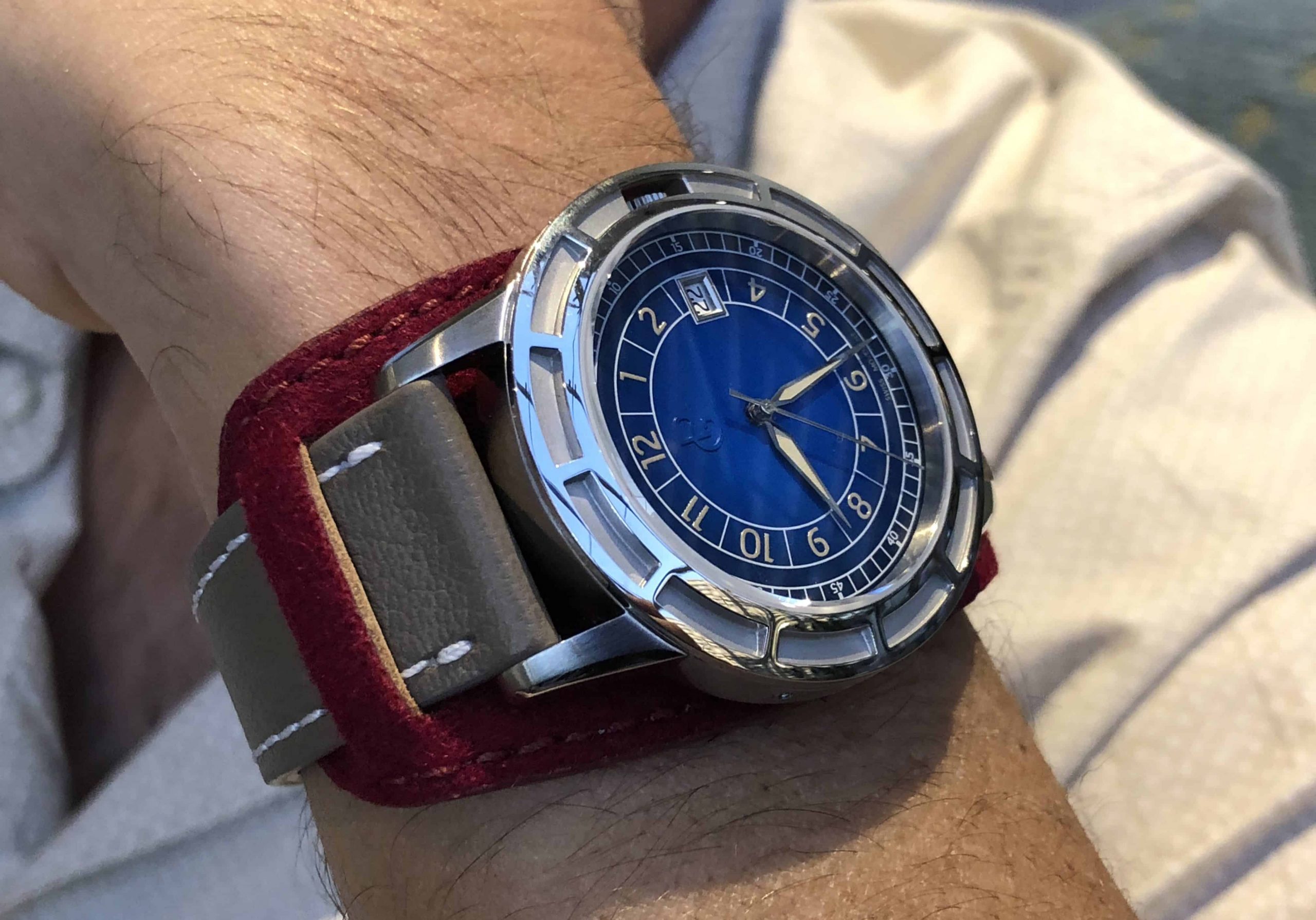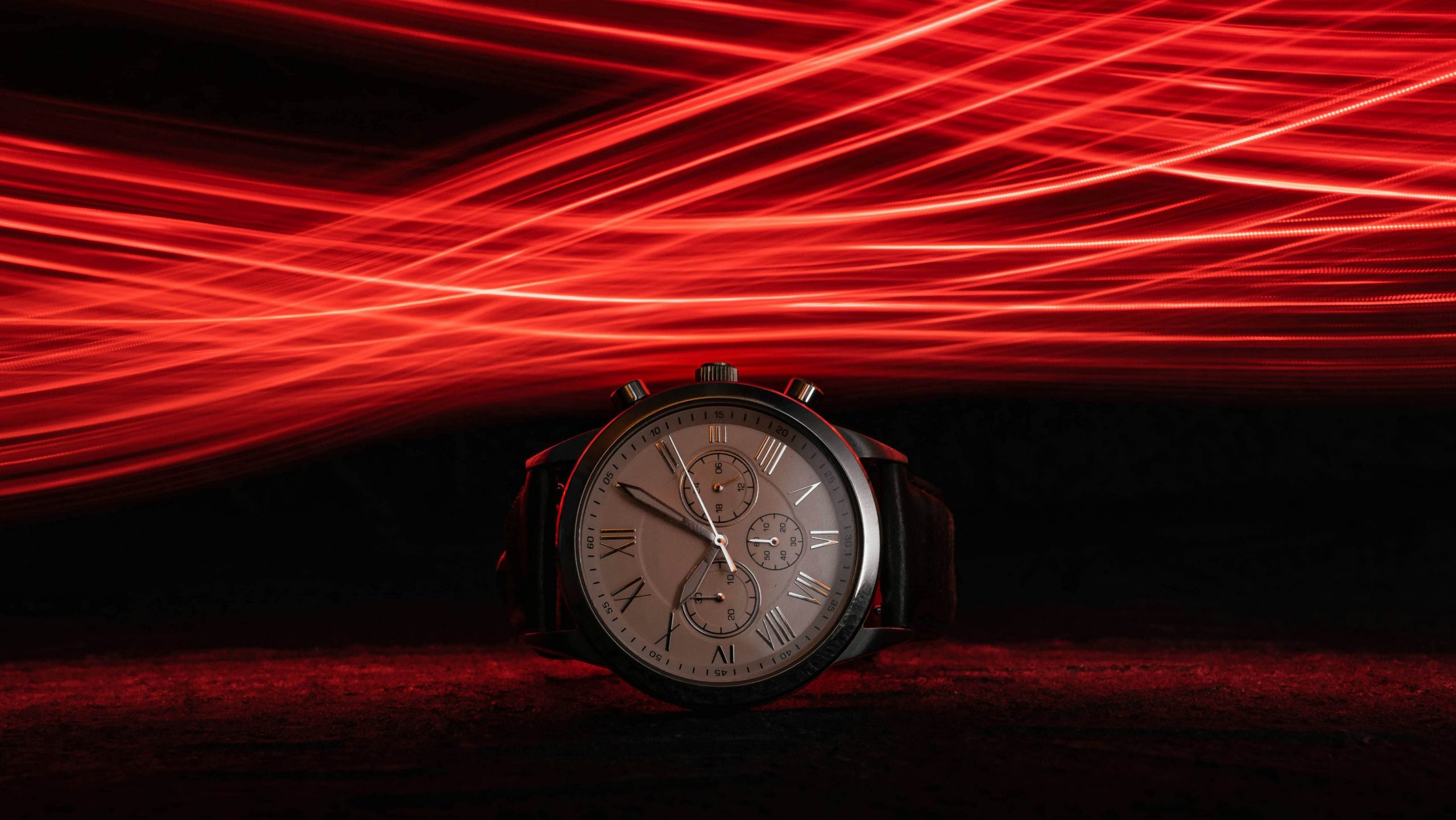
Comparing Automatic vs. Quartz Watches: A Focus on Classic Watches
Introduction
Classic watches embody timeless design and quality materials, transcending trends and fads. At the heart of every classic timepiece lie two main types of watch movements: automatic and quartz. Automatic classic watches harness mechanical ingenuity with a self-winding mechanism, while quartz classic watches rely on battery-powered precision. Despite their shared status as classic timepieces, their distinct characteristics cater to different tastes and priorities among watch aficionados.

© Abhinav Arya / Unsplash
Power Source and Functionality
Automatic Watches: Automatics operate through a self-winding mechanism, driven by the wearer’s movements. A rotor inside the watch winds the mainspring, providing energy to keep the watch running. However, regular wear is essential for continuous operation, and prolonged periods of inactivity may necessitate manual winding to restart the watch.
Quartz Watches: Quartz, on the other hand, is powered by batteries, offering unparalleled accuracy and reliability. They are less reliant on daily wear, making them ideal for occasional or secondary timepieces. However, periodic battery changes are required to maintain functionality.
Accuracy and Performance
Automatic Watches: Due to their mechanical complexity, automatic ones tend to be less accurate compared to their quartz counterparts. Factors such as the watch’s position and the wearer’s activity level can affect its accuracy.
Quartz Watches: Quartz are renowned for their exceptional accuracy, typically losing or gaining only a few seconds per year. They are less susceptible to the effects of everyday wear and tear, providing consistent precision over time.

© Minku Kang / Unsplash
Maintenance and Servicing
Automatic Watches: The intricate movements of automatics require periodic professional servicing to maintain optimal performance. This servicing comes at a higher cost compared to quartz watches.
Quartz Watches: Quartz has relatively low maintenance needs, with the primary service requirement being battery replacement. This makes them more cost-effective in the long run.
Value and Investment
Automatic Watches: Automatics are often viewed as both a form of craftsmanship and an engineering marvel. Certain brands and models can appreciate in value over time, making them potential investments for collectors.
Quartz Watches: While generally more affordable upfront, quartz is subject to value depreciation over time. They are regarded more as functional accessories than investment pieces.

© Marvin Meyer / Unsplash
Style and Design Considerations for Classic Watches
Automatic Watches: Automatics often feature exhibition backs, showcasing their intricate mechanical movements. They offer a wider range of design styles, from elegant dress watches to rugged sports timepieces.
Quartz Watches: Quartz typically features simpler design aesthetics with concealed movements. The emphasis is placed on clean lines and functionality, catering to those who prefer understated elegance.
Conclusion
In conclusion, the comparison between automatic and quartz on classic watches highlights their distinct characteristics and appeals to different segments of watch enthusiasts. While both can be considered classic timepieces, the choice ultimately boils down to individual preferences regarding power source, accuracy, maintenance needs, investment potential, and design aesthetics. Whether opting for the timeless charm of automatic watches or the precise efficiency of quartz, both offer a gateway to the world of classic horology.
Key Takeaways
- Power Source and Functionality:
- Automatic Watches: Operate through self-winding mechanisms, relying on regular wear and occasional manual winding.
- Quartz Watches: Powered by batteries, offering precision without the need for daily wear but requiring periodic battery changes.
- Accuracy and Performance:
- Automatic Watches: Less accurate due to their mechanical complexity and are influenced by the wearer’s activity.
- Quartz Watches: Renowned for exceptional accuracy, losing or gaining only a few seconds per year with consistent precision over time.
- Maintenance and Servicing:
- Automatic Watches: Require periodic professional servicing, resulting in higher maintenance costs.
- Quartz Watches: Have low maintenance needs, primarily requiring battery replacement, making them more cost-effective in the long run.
- Value and Investment:
- Automatic Watches: Seen as craftsmanship and engineering marvels, with certain models appreciating in value over time.
- Quartz Watches: Generally more affordable upfront, but subject to value depreciation, are regarded more as functional accessories than investments.
- Style and Design Considerations:
- Automatic Watches: Showcase intricate movements, offering a wider range of design styles from elegant to rugged.
- Quartz Watches: Feature simpler aesthetics with concealed movements, emphasizing clean lines and functionality.
FAQs (Frequently Asked Questions)
Are automatics more expensive than quartz?
Automatic watches often come with a higher price tag due to their intricate craftsmanship and mechanical complexity.
Do quartz watches require regular winding?
No, quartz watches do not require winding as they are powered by batteries. However, periodic battery changes are necessary to maintain functionality.
Can automatic watches be worn daily?
Yes, automatic watches are designed to be worn regularly to keep them operational. However, they may need manual winding if left unworn for extended periods.
Which type of watch movement is more suitable for collectors?
Automatic watches, particularly those from prestigious brands or with unique complications, are often sought after by collectors for their craftsmanship and potential investment value.
Are quartz watches less durable than automatic watches?
Both types of classic watches can be highly durable, but quartz watches may have an edge in terms of longevity due to their lower susceptibility to mechanical wear and tear.
Prepare to be captivated as we unravel the intricate tapestry of design evolution behind Pierre Gaston’s legendary timepiece.




